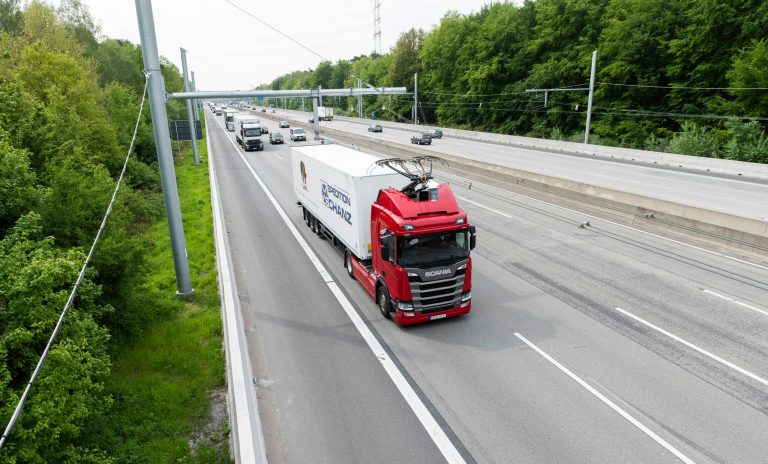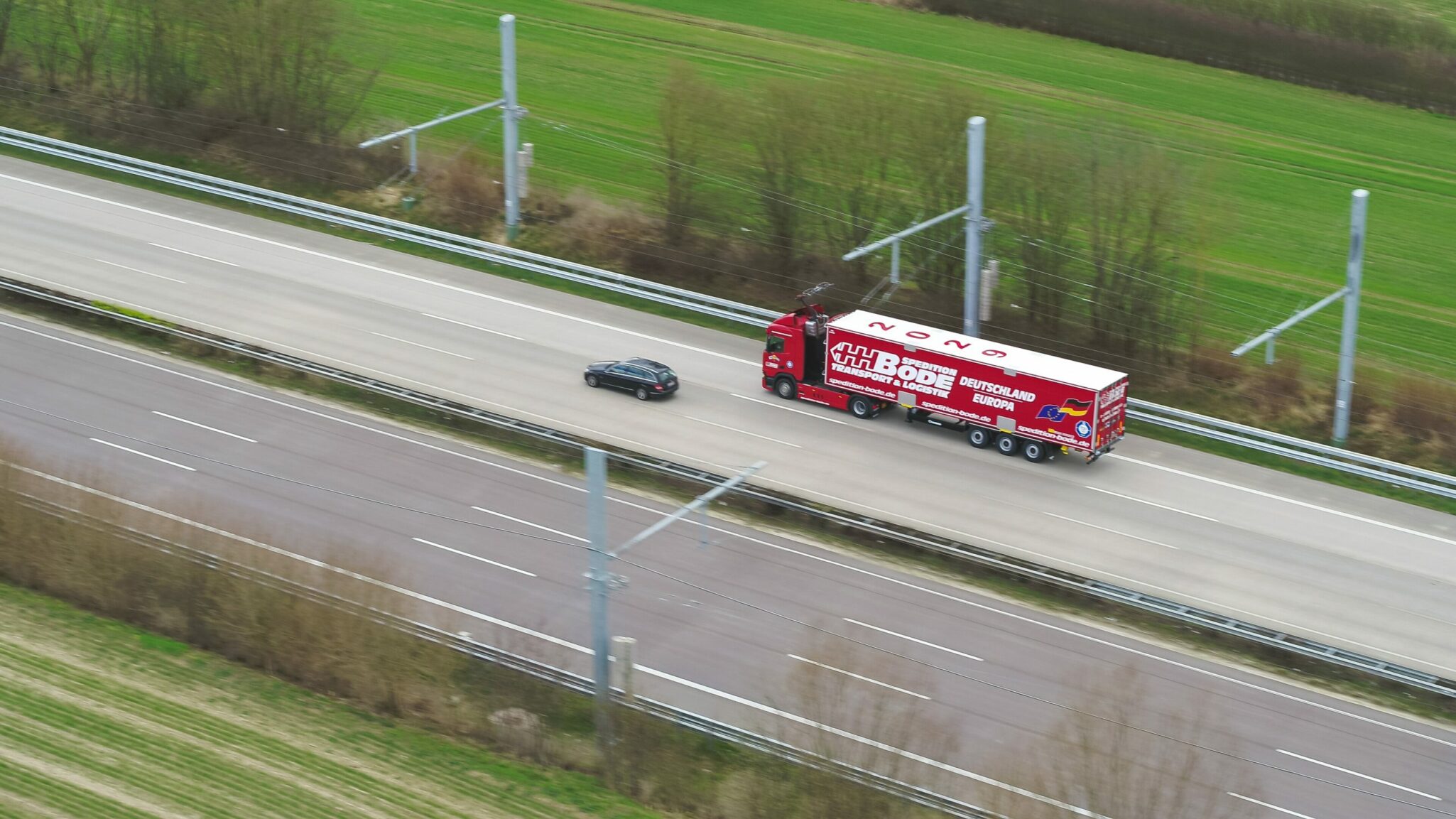Overhead line trucks are a building block for the electrification of heavy goods traffic. IKEM develops proposals for a suitable legal framework.

The advancing climate change highlights the need for a timely decarbonization in all sectors of the economy. Both national and European politicians recognized this process and aim to find solutions by setting stricter climate targets for 2030 and 2050. However, emissions from the transport sector have stagnated in recent decades, especially in Germany. In this context, a decarbonization solution, particularly for the high-emission heavy-duty transport sector, can be considered goal-oriented. The catenary truck represents such a solution and is being researched as part of the AMELIE II project.
As a follow-up project to AMELIE, the AMELIE II project aims at creating a technical, economic, logistical and legal framework for integrating the overhead line infrastructure for electrically powered trucks into the existing infrastructure and creating a suitable billing system. The exchange between the technical-economic and legal sides, as well as the identification of relevant stakeholders and their involvement, is central to this.
The project also aims to develop proposals for a uniform legal framework for catenary trucks in Germany and Europe. To this end, IKEM conducts legal analyses and develops concrete recommendations for action in exchange with the project partners.
 Quelle: Siemens Mobility GmbH
Quelle: Siemens Mobility GmbHKnezevic, Giverny et al.
2023.
Claes, Fynn; Knezevic, Giverny
Policy Paper, entstanden im Rahmen des Projekts AMELIE II. 2022.
Knezevic et al.
Version 2.0. Erstellt im Rahmen des durch das BMWK geförderten Projektes AMELIE 2. 2022.
Giverny Knezevic, Benjamin Grosse, Matthias Hartwig
2021.
giverny.knezevic@ikem.de
+49 (0)30 408 1870-36
matthias.hartwig@ikem.de
+49 (0)30 408 1870-16
AMELIE 2 - Billing systems and methods for electrically operated trucks, as well as their interoperable infrastructures in the European context 2
Principal: Federal Ministry for Economic Affairs and Climate Action
Project partner: Fachhochschule Erfurt , Siemens Mobility
Duration: 11/2020–10/2023
© Institute for Climate Protection, Energy and Mobility – Law, Economics and Policy e.V.